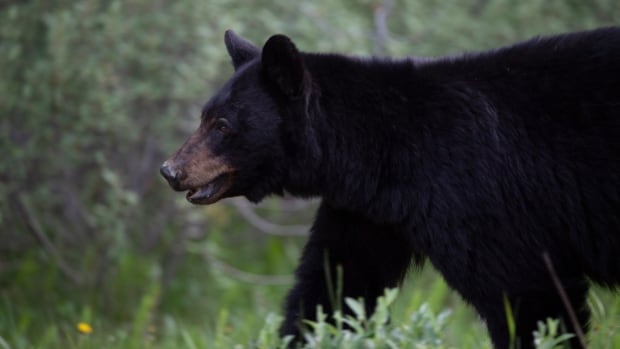
A recent bear attack in northwestern Ontario has stirred discussions around bear safety. Officials say the incident should not spark fear but should inspire people to take appropriate safety measures.
Earlier this month, emergency services responded to a bear attack in a remote area of Wabakimi Provincial Park. One person sustained non-life threatening injuries and was sent to hospital for treatment of their injuries.
“Bear attacks on humans are extremely rare occurrences,” Micheline Mamone, provincial co-ordinator of human/wildlife management with the Ministry of Natural Resources (MNR), said after the attack.
“Here in Ontario we have a healthy and sustainable population of black bears and lots of people recreating on the landscape. There are thousands of human bear interactions every year in Ontario and very, very few result in a bear making contact with a human.”
In an email to CBC, a spokesperson for Wabakimi Provincial Park said the attack happened the morning of June 12, when a guest with a commercial tourism outpost camp was confronted and attacked by a bear while outside.
“The individual attempted to scare the bear away; however, they were unsuccessful until another guest aided in scaring the bear off,” reads the statement from the park.

Ontario Provincial Police, ministry officials and EMS responded to the incident. Police said the bear was gone upon arrival of emergency services, but it was later captured by the MNR. A DNA test will confirm if the animal is in fact the same bear from the attack.
Much of Ontario considered bear country
Mamone said while an attack like this is uncommon, it is important for people to take precautions and practise bear safety, especially while in forested areas of the province.
“So we want to do things like preparing ourselves with knowledge on how to react in the case of an encounter, and we want to be doing things like considering taking bear spray with us if we’re going out to remote locations,” said Mamone, adding it’s essential to always be aware of your surroundings.
The province has multiple online resources dedicated to bear safety. They outlines preventive measures as well as what to do in the event of a bear encounter.
Some tips include making noise as you travel through forested areas, hiking in groups and ensuring accompanying dogs are leashed.
Ontario’s Bear Wise website says bears are not fans of surprises, and unleashed dogs can cause a defensive attack on both dogs and their owners.
Much of northern Ontario falls into bear country territory, according to the province. There are also precautions people in urban or residential areas, where bears may also roam, can take.
That means keeping properties free of garbage or other bear attractants.
“So if you think about a bird feeder, one bird feeder filled with about seven pounds of bird seed has about 20,000 calories,” said Mamone. “So that’s really attractive if you are a bear seeking to gain weight during the summer months. So we really do recommend that you remove your bird feeders from April until November.”
As well, the MNR recommends keeping barbecues clean and free of any scraps of food or grease.
Bear sightings in Thunder Bay District
Keeping recreational areas free of garbage to help keep bears away is also top of mind for staff at the Lakehead Region Conservation Authority (LRCA). The organization oversees a number of conservation areas in the Thunder Bay district.
“Typically bear sightings in conservation areas are fairly uncommon … conservation areas are natural spaces. And so, there is a likelihood and an expectation that people should have when they’re visiting a conservation area that they may encounter some form of wildlife and that may include black bears,” said Ryan Mackett, communication manager with the LRCA.
The conservation authority follows Ontario’s guidelines when it comes to bear safety, but it does have some of its own policies and procedures for the safety of visitors and the natural environment.
“Don’t litter on the trails, don’t leave anything out that may have the scent of food on it. That’s just going to attract bears to the area. So if we keep our trails looking as pristine as possible … the less likely that there will be bear encounters,” said Mackett.
Recently, the LRCA shared that there was a bear sighting in its Mission Island Marsh Conservation Area.
People are encouraged to call Ontario’s Bear Wise line for non-emergency bear encounters and to call 911 or local police if a bear poses any immediate threat or shows aggressive behaviour.
According to the MNR, from April 1 to June 23, the Bear Reporting Line has received 40 calls from the Thunder Bay District.
In the same time period in 2023, just 14 calls were received on the bear reporting line.